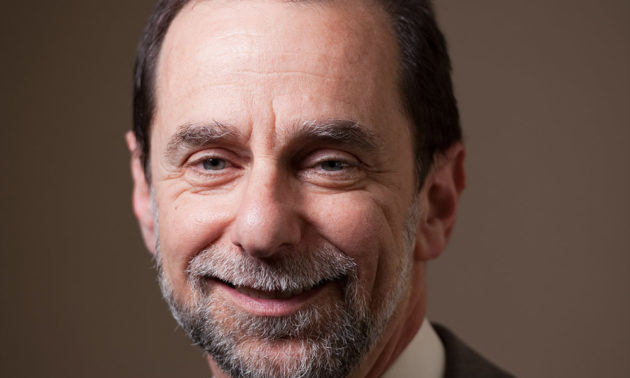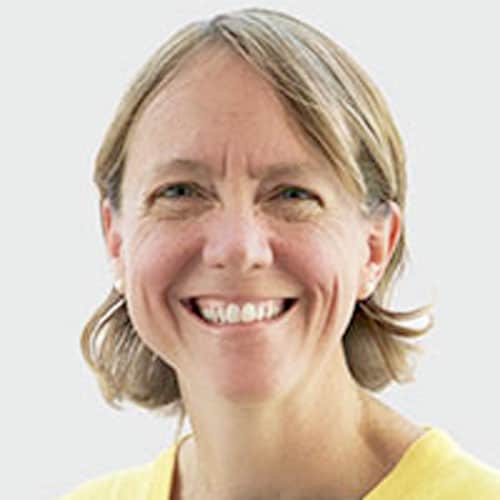
Richard Feldman, dean of the College for the past decade, has decided to step down at the end of the 2016-17 academic year. Feldman, also a professor of philosophy in the School of Arts & Sciences, will be returning to the philosophy department following a year of leave in the 2017-18 academic year.
“Rich has immeasurably strengthened and enriched our undergraduate programs,” says Peter Lennie, senior vice president and the Robert L. and Mary L. Sproull Dean of the Faculty of Arts, Sciences & Engineering “On every dimension on which we characterize ourselves, his thoughtful and principled leadership has made a huge difference. I’m immensely grateful for 11 years of a most rewarding partnership.”
“With integrity and tireless energy, Rich has demonstrated an enormous commitment to the College and his impact on its progress cannot be overstated,” says Joel Seligman, president, CEO and G. Robert Witmer, Jr. University Professor. “He has fostered important interdisciplinary academic collaborations, championed the liberal arts as the foundation for an enriching education at our research university, and strengthened every facet of the undergraduate experience. His ideas and actions have positively affected the lives of the thousands of undergraduates who have attended the University, and will benefit our future classes to come. I wish Rich all the best as he prepares to conclude his deanship and am deeply grateful for his enduring contributions to the College and the University.”
A search for a new dean of the College will begin after the appointment of a new dean of the faculty of Arts, Sciences & Engineering, to succeed Lennie.
Feldman has served the University for more than 40 years. He came to Rochester in 1975 as an assistant professor of philosophy, later became professor, and served as chair of the department for 13 years. In July 2006, he was named interim dean of the College, and then was formally appointed dean.
As dean, he leads the units, programs, and initiatives that serve the academic and non-academic needs of the undergraduates in Arts, Sciences & Engineering on the River Campus. He oversees 16 offices and centers focused on academics, research, and student life, among them the Office of Undergraduate Research, David T. Kearns Center for Leadership and Diversity, Office of Minority and Student Affairs, Office of the Dean of Students, and Office of Residential Life and Housing Services. He also administers and appoints members to several faculty committees, including the College Curriculum Committee and the Board on Academic Honesty.
Early in his career, he helped create and implement the popular Rochester Curriculum, allowing undergraduates to build their own program of study based on their strengths and interests. As dean, he has worked very closely with faculty to develop new academic programs for undergraduates, especially those focused on new interdisciplinary courses and degree options. In 2009, he initiated a collaboration between the College and the Medical Center’s Department of Community and Preventive Medicine to offer a new public health major for undergraduates, focused on students gaining a broad understanding of global and regional public health challenges. In 2011, he collaborated with leaders at the Simon Business School to develop an undergraduate business major grounded in a liberal arts setting and based in the College.
He has also emphasized increasing the retention and graduation rates for a growing student body in the College. The College’s six-year graduation rate was about 80 percent several years ago, and during Feldman’s leadership rose to 88.2 percent in 2015. The steadily increasing graduation rate as well as the high first-year retention rate are the result of strategic steps Feldman has taken to continuously improve the quality of the undergraduate experience, including creating stronger academic and career advising services, enhancing support programs for at-risk students, and offering opportunities to engage in high quality undergraduate research. He has also helped extend undergraduate learning beyond the classroom by introducing new options in education abroad, internships, and community-based learning opportunities.
Growing essential student support services, including mental health and counseling programs, has also been critical to increasing the graduation rates by helping students stay on track toward their degree. Among the services that Feldman was instrumental in developing and launching is the University’s CARE Network, which has become a model program in higher education that helps to identify and get resources to students who are in or heading toward distress.
Most recently, Feldman played a lead role in planning the renovation of the 79,000-square-foot Frederick Douglass Building on the River Campus into reinvented student-centered spaces. The recently opened student hub has a state-of-the-art undergraduate dining facility, modern gathering spaces for student clubs and activities, and dedicated space for the Paul J. Burgett Intercultural Center and the Language Center.
This past year, Feldman has also served as cochair—with Paul Burgett, vice president and University dean—of the Presidential Commission on Race and Diversity, comprised of students, faculty, and staff and charged with assessing the state of the campus climate and offering recommendations for improvement.
As a scholar, Feldman is recognized as one of the world’s leading epistemologists. His work challenges assumptions about knowledge and rationality, and with his University collaborator, Professor Earl Conee, he developed the widely discussed theory of evidentialism, based on the notion that beliefs are worth only as much as the evidence supporting them. Feldman has helped set the agenda on the topic of “reasonable disagreement,” which questions the possibility of people with similar bodies of evidence reasonably coming to different conclusions.
He has received fellowships and grants from the Mellon Foundation, the National Endowment for the Humanities, the National Defense Education Act, and the American Council of Learned Societies. In 2011, he was recognized with “Feldmania,” an academic conference celebrating his contributions to epistemology.
In May 2016, Feldman received the University’s William H. Riker University Award for Excellence in Graduate Teaching, honoring professors who have excelled in graduate instruction, particularly in the doctoral programs. And this past October, Feldman received the Romanell-Phi Beta Kappa Professorship, awarded nationally to scholars in the field of philosophy to recognize not only distinguished achievement, but also the recipient’s contribution to public understanding of philosophy.



